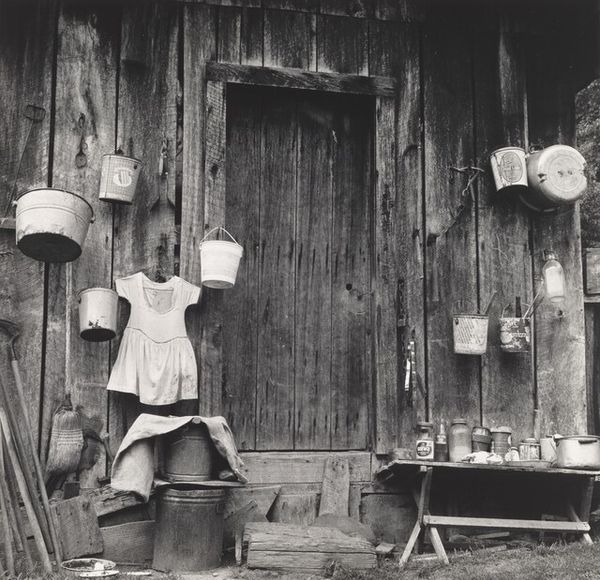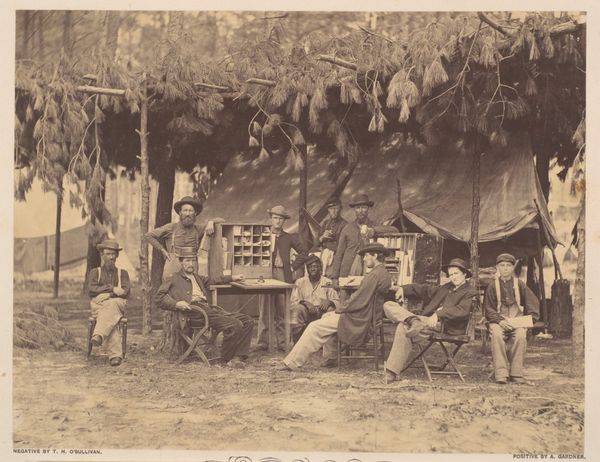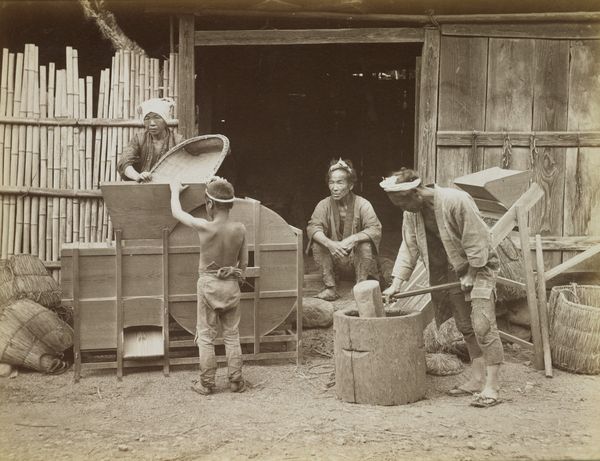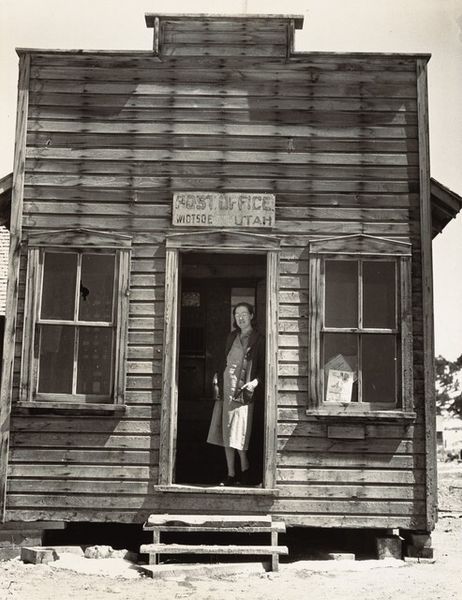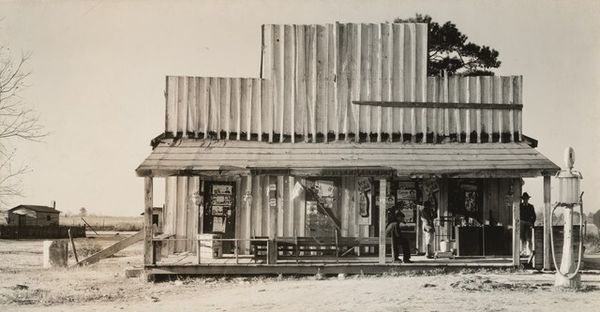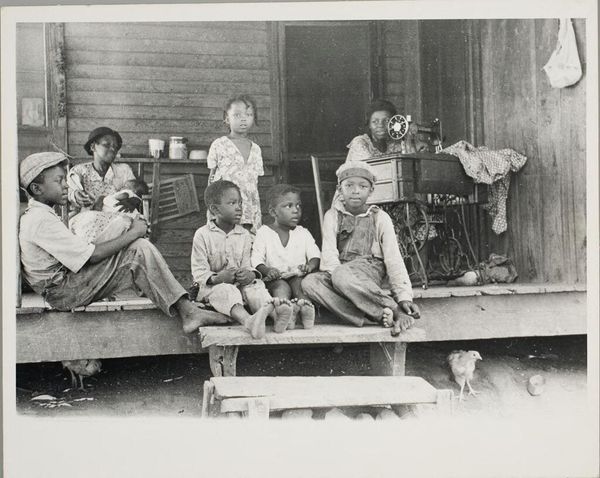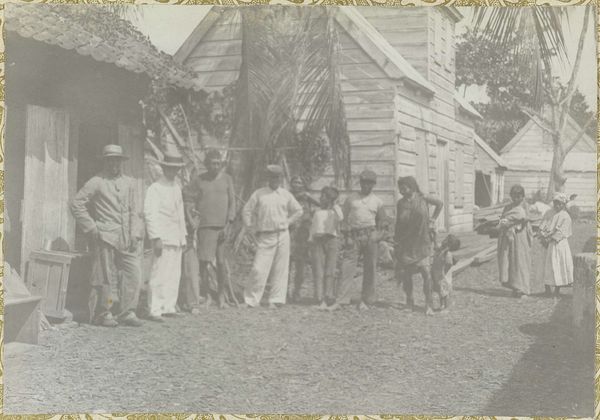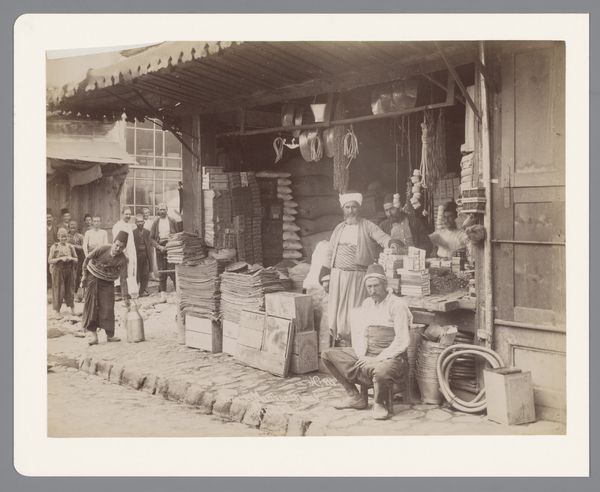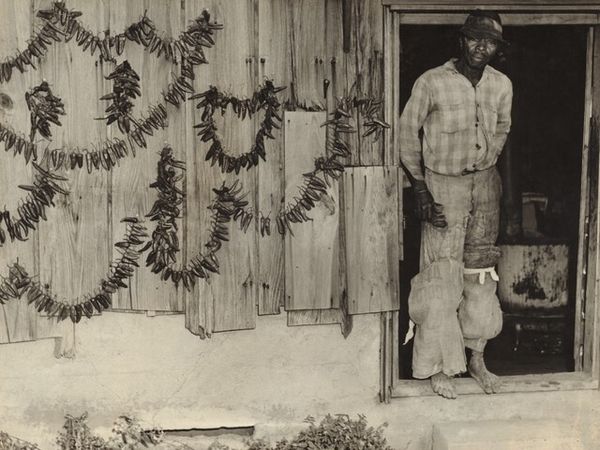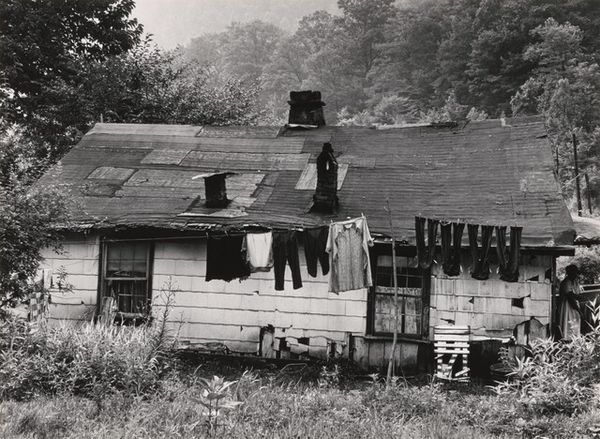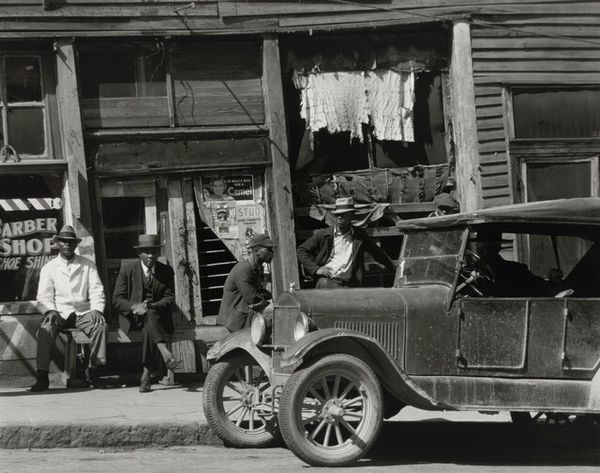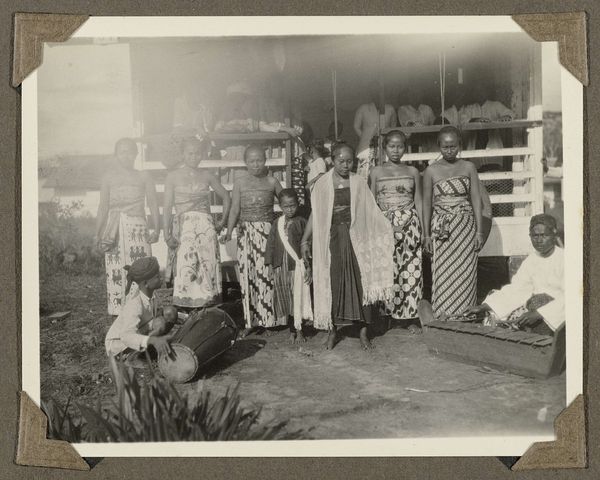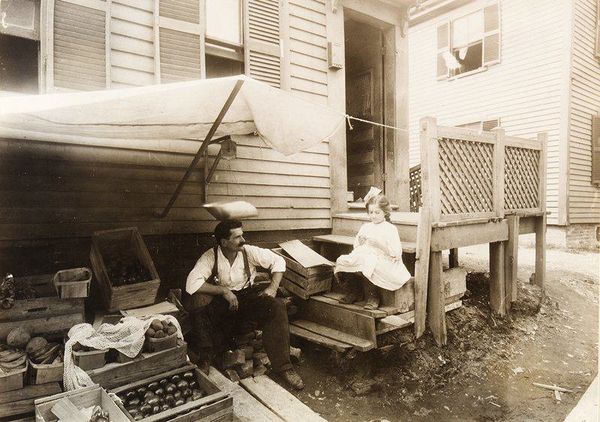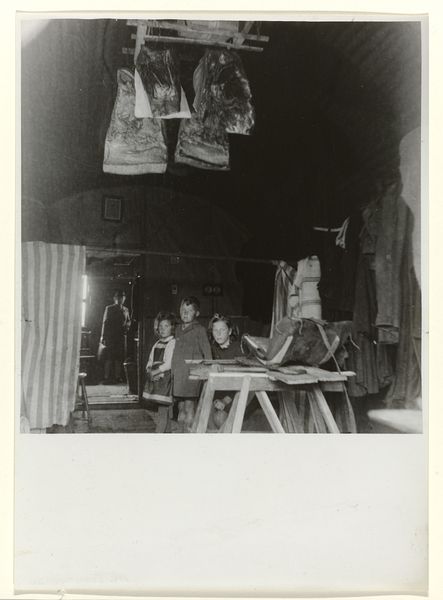
Country store on dirt road. Sunday afternoon. Note the kerosene pump on the right and the gasoline pump on the left. Rough, unfinished timber posts have been used as supports for porch roof. Negro men are sitting on the porch. Brother of store owner stands in doorway, Gordonton, North Carolina after 1939
0:00
0:00
photography, gelatin-silver-print
#
portrait
#
landscape
#
social-realism
#
street-photography
#
photography
#
historical photography
#
gelatin-silver-print
#
monochrome photography
#
genre-painting
#
history-painting
#
realism
Dimensions: image: 24.5 × 34.3 cm (9 5/8 × 13 1/2 in.) sheet: 25.6 × 35.4 cm (10 1/16 × 13 15/16 in.)
Copyright: National Gallery of Art: CC0 1.0
Curator: Editor: This gelatin-silver print, "Country store on dirt road. Sunday afternoon…" was created by Dorothea Lange after 1939. It really captures a sense of place and time with its worn textures and the people gathered on the porch. I'm curious about how you see the photograph as a materialist. Curator: Well, the roughness of the timber, the peeling advertisements... it all speaks to the lived reality of the rural South at this time. Consider the gas pumps – emblems of a changing economy, yet rendered almost obsolete by their weathered condition and integration with the unrefined, almost ad hoc architecture. Lange directs our attention to the *means* of both survival and commercial exchange here. What labor do you imagine went into the construction and maintenance of this space? Editor: That's interesting. I hadn't really considered the labor so explicitly. It's clearly a space built with readily available materials, likely by the community itself. And the presence of the African American men on the porch… what’s your read on the socio-economic factors presented there? Curator: Exactly! Note how the Black men are positioned – on the porch, but not *in* the store. The photograph, materially speaking, exposes a stratified social fabric. Even leisure is coded; a stark contrast to the advertised comforts of Coca-Cola or Chesterfield cigarettes which were marketed with different meanings, and accessible by very different social demographics, in different communities. The peeling advertisements also reflect patterns of consumption: Who buys what and why? Editor: So you're suggesting that Lange is less interested in capturing a nostalgic scene, and more focused on documenting the material conditions that shape people's lives? Curator: Precisely. She is scrutinizing the systems of production and consumption – of goods, of leisure, of social status – that intersect at this country store. Editor: This has totally changed how I look at the photograph. I see the economic disparity and the slow progress of modernity contrasted by community and shared space in a new light. Curator: Material analysis really opens our eyes, doesn't it? The objects speak volumes about power and resilience.
Comments
No comments
Be the first to comment and join the conversation on the ultimate creative platform.
